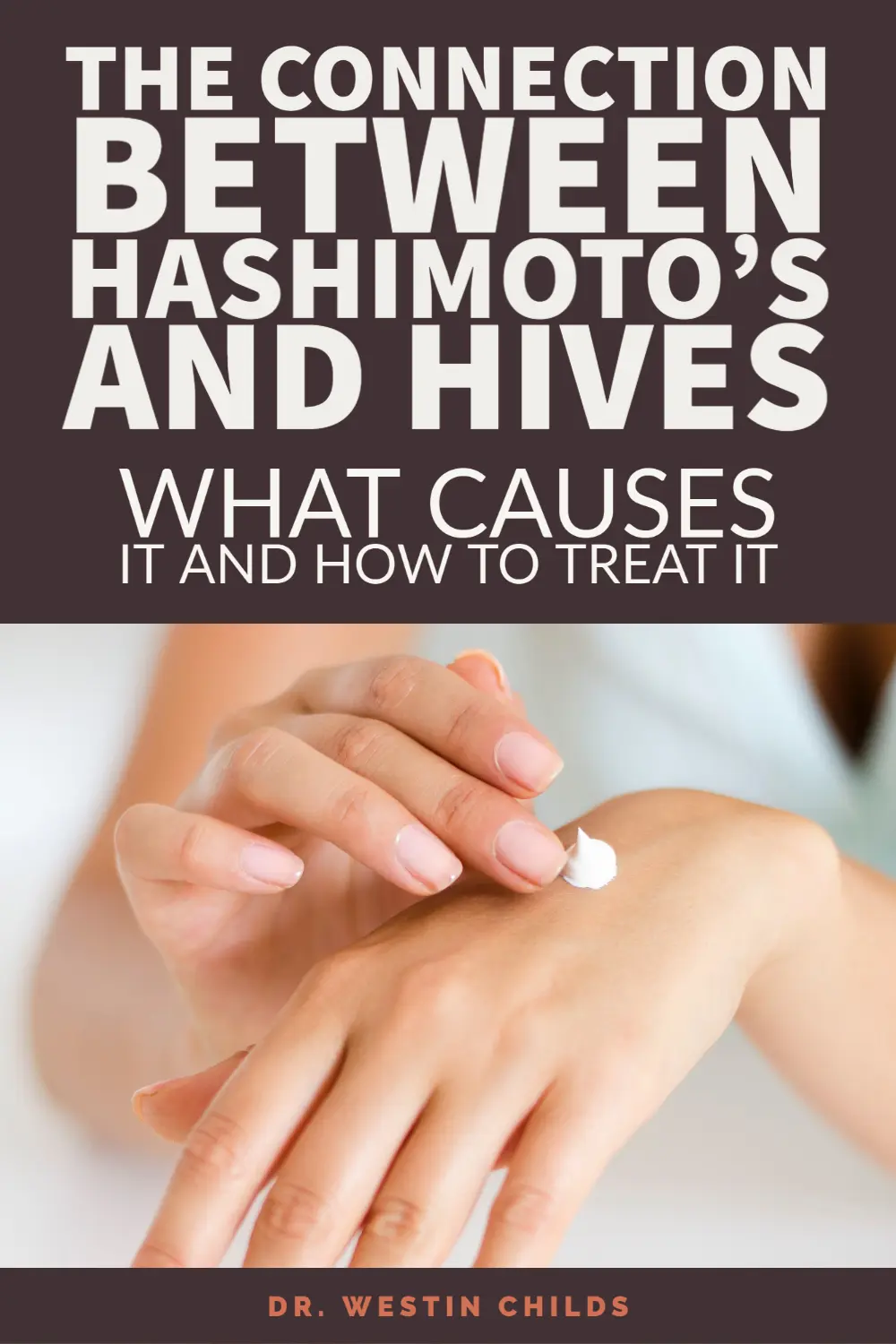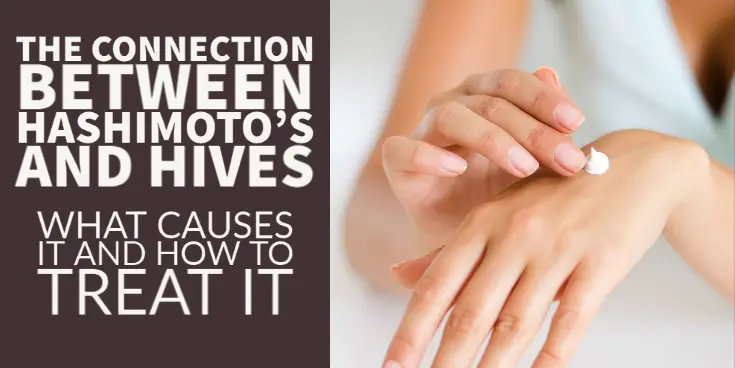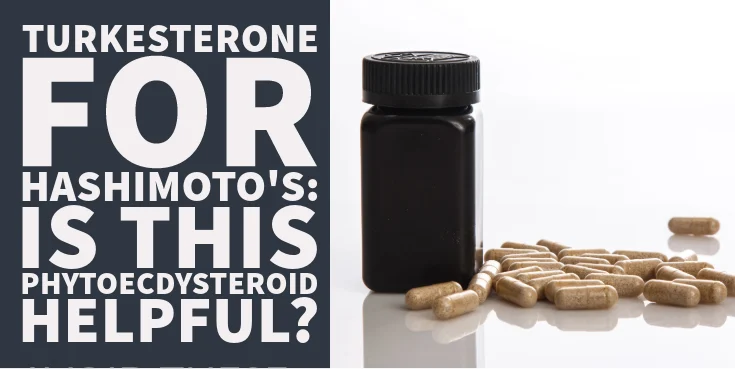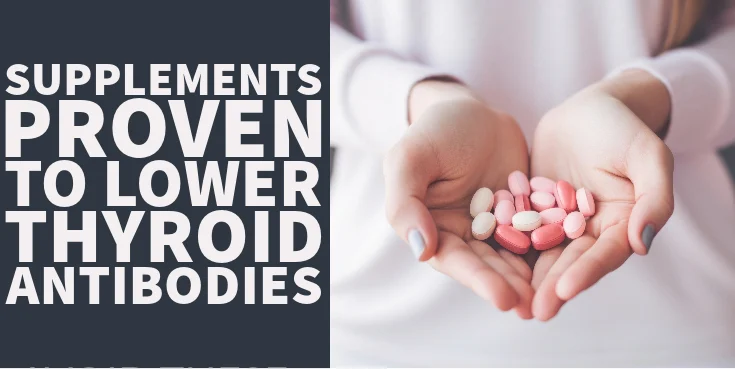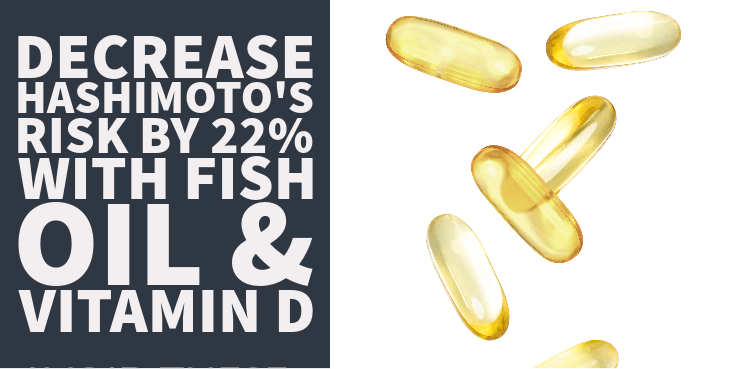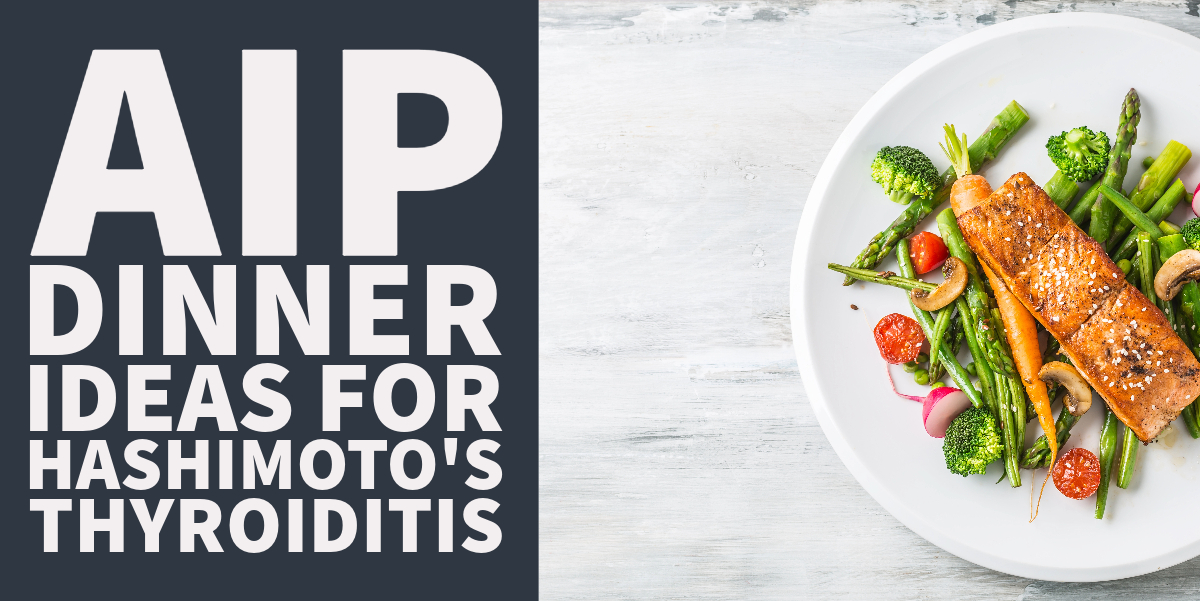Hives are Common Among Patients with Hashimoto’s
There is a big connection between hives and Hashimoto’s disease.
But what does this actually mean for your body or for your thyroid?
Is it a sign that something else is wrong in your body? And if so, how do you manage it?
Today we are going to explore the connection between hives and Hashimoto’s thyroiditis and talk about what actually causes this condition.
But first, you should be aware that hives aren’t just a problem for people with thyroid disease (though it is very common among those with Hashimoto’s).
We have evidence that chronic hives (the chronic part is important) are associated with the autoimmune disease with some studies (1) placing this number as high as 40%.
Hives sometimes referred to as urticaria, are swollen and red areas that appears on the skin.
It’s usually raised and incredibly itchy and it can sometimes be painful.
They are also incredibly annoying and can pop up out of nowhere.
But here’s what’s important:
Hives are not a problem with your skin, instead, they almost ALWAYS represent a problem with your body in general and typically with your immune system.
So, in a way, you should think about hives as a warning sign that something is seriously wrong with your body.
DOWNLOAD FREE RESOURCES
Foods to Avoid if you Have Thyroid Problems:
I’ve found that these 10 foods cause the most problems for thyroid patients. Learn which foods you should avoid if you have thyroid disease of any type.
The Complete List of Thyroid Lab tests:
The list includes optimal ranges, normal ranges, and the complete list of tests you need to diagnose and manage thyroid disease correctly!
Hives are an indication of a deeper problem that Must Be Addressed
Let me put this into perspective:
I remember treating a patient a few years ago who had a problem with chronic hives.
This person was suffering from hives each and every day for 2 years straight.
They went to dermatologists, endocrinologists, and even immunologists and were on all sorts of medications but they still couldn’t manage their symptoms.
This person finally came to see me, at the request of their friend, and within about 10 minutes I diagnosed this person with histamine intolerance (2) and gut dysbiosis.
The treatment? a low histamine diet.
This person was already taking antihistamines, steroids, steroid creams, acid blockers, and so on so they were willing to do anything to get relief.
Within a matter of about 2 weeks, this person was already 80% better and by the 2-month mark was almost completely back to normal.

And you know what this person said to me when I saw them after 2 months?
They were angry with the other “specialists” that they saw and that they completely missed this diagnosis.
I don’t bring this story up to gloat about my diagnostic ability or anything like that but to help you understand a couple of things.
#1. Your doctor is probably not aware of the various causes of hives and is probably not the right person to help you manage this problem.
And #2. hives represent a deeper problem in your body and you should look at them as a symptom and not a disease.
Some of the more frequent causes of chronic hives among Hashimoto’s patients include:
- Food sensitivities – The food that you eat has a profound impact on your immune system both in how it impacts inflammation and also immune function in general. Many people are ‘sensitive’ (not allergic) to many types of foods. As they consume these foods it triggers an immune response that can cascade down the inflammatory pathway. Long-term sensitivities can lead to big-time problems.
- Histamine intolerance – Histamine intolerance can stem from the foods that you eat and is completely different than food sensitivities. In this condition, your body has a difficult time breaking down histamine which leads to an activation of certain immune cells and the symptoms associated with high histamine.
- Immune system dysregulation – Hives are often a symptom of immune regulatory problems (3). The immune system is supposed to reserve the histamine response for specific events but if your immune system is hypersensitive then you may start reacting to things you normally wouldn’t. This problem results in hives from all sorts of encounters to your skin such as laundry detergent, soap, oils, creams, etc.
- Inflammation – Inflammation, especially in the gut, can trigger hives.
- Medications – Believe it or not, medications and even supplements can TRIGGER hives. This is even true of medications that you have been taking for a long period of time. You can suddenly develop hives to these medications due to sensitivities or problems in your immune system.
- Exposure to fungal pathogens and mold – An uncommon cause of hives can be exposure to fungus or mold (4). If you are living in a mold-infested area then this may be the primary cause of your hives.
As I mentioned, these areas will probably be overlooked by conventional doctors.
When someone presents to them with hives they are almost always going to prescribe an antihistamine and/or a steroid cream and call it a day.
But the reality is that you will need to do some digging to figure out what the problem is.
How Do You Know if You Have Hives? These Symptoms are Common
How do you know if you have hives?
Most people who experience them know without a doubt that they have them.
But for those people who may experience rashes and other skin problems, which are common in Hashimoto’s, let me share some of the symptoms.
Hives usually present as:
- Inflamed, red, raised patches of skin.
- You will almost always experience swelling in the area and/or swelling in other areas of your body (lips and face are common).
- Pain and itchiness where the inflamed skin is.
- Individual hive outbreaks usually last less than 24 hours but may recur in the same location the following day.
- Outbreaks can occur anywhere on your skin but frequently occur on the arms and chest area.
- Hives may be precipitated by something that touches your skin or aggravates the skin in a specific area. Other times, hives may appear out of nowhere and for no apparent reason.
- Hives that occur for longer than 6 weeks are considered to be “chronic” whereas if you only have hives once or twice in a short period of time it’s considered “acute”.
- Chronic hives represent a bigger problem for most people compared to acute hives which can be triggered by things like bug bites or exposure to skin irritants.
- Hives can also be associated with nausea, muscle pain, vomiting, and even diarrhea (this depends on the severity of your symptoms).
Depending on your body, and the cause, you may experience any or all of these symptoms.
But you should be able to easily differentiate hives from something like a rash with the list above.
Standard Treatments May not Work and Only Address your Symptoms
If you go to your doctor you will receive an array of lotions and potions to try and treat your issue.
And while many of these medications are ineffective, it’s still worth mentioning them and how they work.
The general way that doctors try to treat hives is by reducing the immune response in the skin.
This is achieved through a combination of medications, creams, and even steroids (if necessary).
Common treatments include:
- Topical steroids – Topical steroids, such as hydrocortisone, are used to try and reduce local inflammation and the immune response.
- Oral steroids (not as common) – Sometimes patients are given oral steroids which are FAR more powerful (and potentially harmful to the body) than topical steroid creams.
- Antihistamines (sometimes referred to as histamine blockers) – Antihistamines, such as Benadryl, will often be recommended. These can sometimes work but often cause severe drowsiness.
- Acid blockers (rarely) – Sometimes doctors will recommend H2 blockers/antagonists which are first-generation acid blockers to treat hives. These medications are NOT the same as acid blockers such as pantoprazole but work through a completely different mechanism. Most acid blockers prescribed today are more like the former as opposed to the latter.
- General allergy medication – Doctors will also recommend allergy medication both over the counter and prescription to treat your hives.
As I mentioned, these medications and therapies can sometimes be effective but they miss the bigger picture.
How to Manage your Hives Naturally
A more natural, and effective I might add, way to manage hives in Hashimoto’s (and in general) is to look deeper than the skin.
Instead of focusing on what you put on your skin, focus on what is happening INSIDE your body, and WITH your immune system.
You will almost always find the answer here and finally obtain relief.
If you suffer from chronic hives then you will want to look at these areas:
- Check your thyroid (make sure that you are being treated correctly) – You want to make sure that you thoroughly check your thyroid to ensure that it is working properly. If you are taking thyroid medication then this means that your dose is optimized and your thyroid symptoms are completely resolved. This means you will need to get a complete thyroid lab panel including thyroid antibodies, TSH, free T3, free T4, and reverse T3.
- Manage your Hashimoto’s naturally – More important than managing your thyroid function is ensuring that you are also paying attention to your immune system as well. Remember, Hashimoto’s is BOTH a thyroid condition and an immune condition. If you focus on one at the expense of the other, you are doing a great disservice to your body.
- Address your gut – Addressing your gut means cleaning up your diet but it also means reducing inflammation, healing the gut lining, and repopulating your gut with healthy bacteria. Healing the gut is not as easy as taking a probiotic and calling it a day (though that can be helpful) but instead making many changes all at once and doing it consistently over time. For perspective, it takes months and months to heal your gut and sometimes as long as years.
- Address your diet – Make sure you pay special attention to your diet and, more specifically, food sensitivities. Once you have some baseline level of inflammation in your body it’s easy to develop multiple sensitivities to various types of foods. And this can include healthy foods as well! You can check for these foods using delayed IgG food sensitivity tests. They are not 100% accurate but if you want something to follow then this is your best bet.
- Take anti-inflammatory supplements – You should also consider taking supplements that help cool down the immune system and inflammation. Supplements that do this include zinc, vitamin d3, and fish oil.
- Diamine oxidase – Lastly, you may want to consider using an enzyme known as diamine oxidase (5). Diamine oxidase is an enzyme found in your intestinal tract which helps to break down histamine. Many people with histamine intolerance find that they do not produce enough of this enzyme so supplementing with it may help.
Don’t be afraid to use these therapies in combination with some of the conventional therapies listed above.
The only therapies that I would stay away from or avoid like the plague are topical steroids.
Steroids have a local suppressive effect on the immune system but get absorbed into the skin and can cause problems for your adrenals.
But over-the-counter medications like Benadryl are not likely to cause any long-term harm and can help alleviate your symptoms in the short term.
Final Thoughts
The bottom line?
You do not have to live with hives in Hashimoto’s forever. There are ways that you can not only reduce your symptoms but completely eliminate them.
It starts by taking inventory of your diet and lifestyle and reverse engineering how it may be negatively impacting your immune system.
From there you can make targeted changes to your diet, eliminate foods you may be sensitive to, take the right supplements, and improve your thyroid function.
All of these will help reduce the frequency or completely eliminate your hives.
Now I want to hear from you:
Are you someone suffering from hives and Hashimoto’s?
If so were you formally diagnosed or is this something you diagnosed yourself?
Have you been to a doctor? If so, what types of therapies have you tried?
What has worked for you? What hasn’t?
Leave your questions or comments below!
